Here’s What Happens If You Eat Too Much Salt
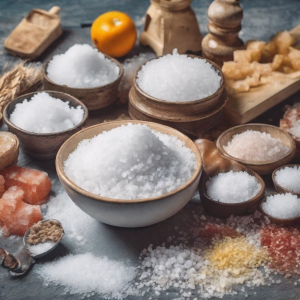
Salt is an essential mineral that our bodies require to function properly. It plays a key role in fluid balance, nerve transmission, and muscle contraction. However, most people today consume way more than the recommended amount of salt each day. A diet high in sodium can lead to a variety of negative effects on your health over time. Read on to learn about what can happen to your body if you regularly eat too much salt.
Increased Blood Pressure
Consuming excessive sodium is known to cause elevation in blood pressure. When there is extra sodium in the bloodstream, it pulls in and retains more fluid. This increases blood volume and pressure on arterial walls. Over time, the consistent strain can cause arteries to harden and lose elasticity. Hypertension from high salt intake puts you at greater risk of heart attack, stroke, kidney disease and metabolic disorders.
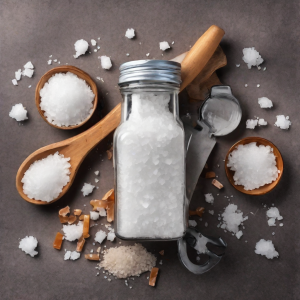
Higher Risk of Stomach Cancer
Studies show a link between high sodium consumption and an increased risk of developing stomach cancer. Infections by H. pylori bacteria are a major risk factor as well. Eating lots of salty foods not only aggravates stomach lining inflammation caused by H. pylori but also itself causes damage. Too much salt can lead to atrophic gastritis where stomach cells are destroyed and replaced by scar tissue. This condition significantly raises your chances of stomach cancer.
Greater Fluid Retention
One of the ways our bodies maintain fluid balance is by either retaining or excreting sodium through the kidneys. If you frequently eat an excess of salty foods, your kidneys will start retaining more sodium in order to maintain homeostasis. But sodium attracts and pulls in water so increased sodium retention leads to fluid retention. This often manifests in puffiness, bloating, swollen ankles, fingers and eyelids.
Higher Risk of Osteoporosis
Eating excess sodium causes more calcium to be lost through the urine. Over time, this calcium loss can lead to the bones being depleted of this essential mineral. Women in particular lose a significant amount of bone minerals after menopause, so increased sodium and calcium excretion accelerates bone demineralization and risk of osteoporosis. Cutting salt intake helps retain calcium in bones.
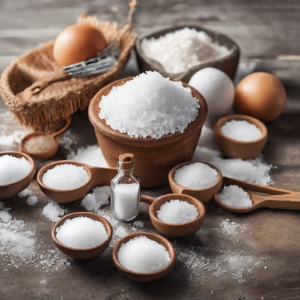
Kidney Strain and Impaired Function
Since sodium balance and fluid volume are primarily regulated by the kidneys, eating too much salt puts a lot of strain on these vital organs to keep up. The kidneys have to work overtime to filter out the extra sodium. This constant pressure damages the delicate kidney tissues, leading to impaired function over time. Excess sodium intake is linked to chronic kidney disease.
Dehydration
All that increased fluid excretion caused by high sodium consumption has a dehydrating effect on the body. You may not feel thirsty despite the fluid loss because your body maintains blood volume through retention. But the loss of water in urine means you can become chronically dehydrated. This places added stress on the kidneys and cardiovascular system. Staying well hydrated is key.
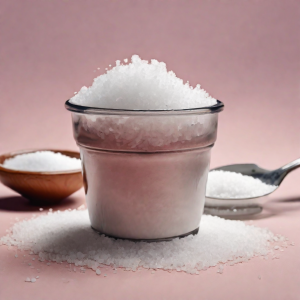
Increased Appetite and Overeating
Salt stimulates taste receptors and certain brain areas linked to reward and cravings. The more salty foods you eat, the more it may enhance your appetite and cause you to consume more calories than needed. Excess sodium intake is linked to increased thirst as well. This combination often leads to overeating high calorie processed foods and soft drinks.
Higher Risk of Gastric Ulcers
Consuming lots of salty foods significantly increases risk of developing painful gastric ulcers in the intestinal lining. Several factors play a role. Sodium is known to stimulate increased hydrochloric acid production in the stomach which can burn and damage the mucosa. Additionally, high salt diets also promote H. pylori infection and atrophic gastritis, two main causes of ulcers.
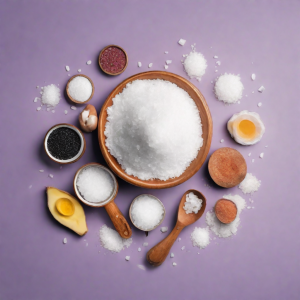
Fluid Around the Heart
In rare cases, extremely excessive sodium intake amounting to tens of thousands of milligrams per day can cause a dangerous condition called hypervolemia. It’s characterized by high blood volume from fluid retention. The excess fluid builds up around the heart tissue, called pericardial effusion. This fluid can compress the heart and affect cardiac output. It requires urgent medical treatment.
Increased Risk of Gastroesophageal Reflux (GERD)
GERD develops when stomach acid frequently flows back up into the esophagus, causing irritation and pain. Consuming large amounts of salt can encourage this reflux. Increased sodium chloride intake stimulates greater hydrochloric acid production in the stomach and also may relax the esophageal sphincter muscles that prevent backwash. This allows painful burning acid to regurgitate upwards.
Greater Burden for People with Congestive Heart Failure
In individuals with congestive heart failure (CHF), high sodium intake seriously exacerbates symptoms. Excess sodium causes the body to retain more fluid, which places additional strain on the heart to pump properly and circulate oxygenated blood efficiently. Cutting sodium intake is critical for CHF patients to avoid complications like fluid buildup in lungs or swelling.
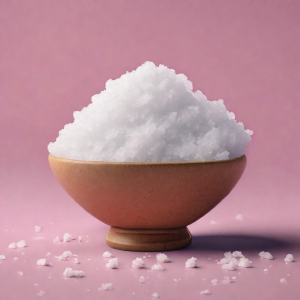
Higher Chance of Developing Varicose Veins
Although the exact mechanisms are still being studied, there appears to be a correlation between high salt intake and increased risk for varicose veins. Consuming too much sodium may cause vein valve dysfunction and venous blood pooling by impacting smooth muscle function and vascular tone. The resulting increased pressure can enlarge veins and cause unsightly protruding varicose veins.
Conclusion
While some salt is essential, excessive consumption clearly has detrimental impacts on health ranging from high blood pressure to kidney damage, stomach cancer and osteoporosis risk. Limit your intake to the American Heart Association’s recommended maximum of 2,300 mg of sodium per day. Focus on eating whole, unprocessed foods and use little or no added salt in cooking or on foods. Read labels to identify and avoid high sodium products. Your kidneys and heart will thank you.